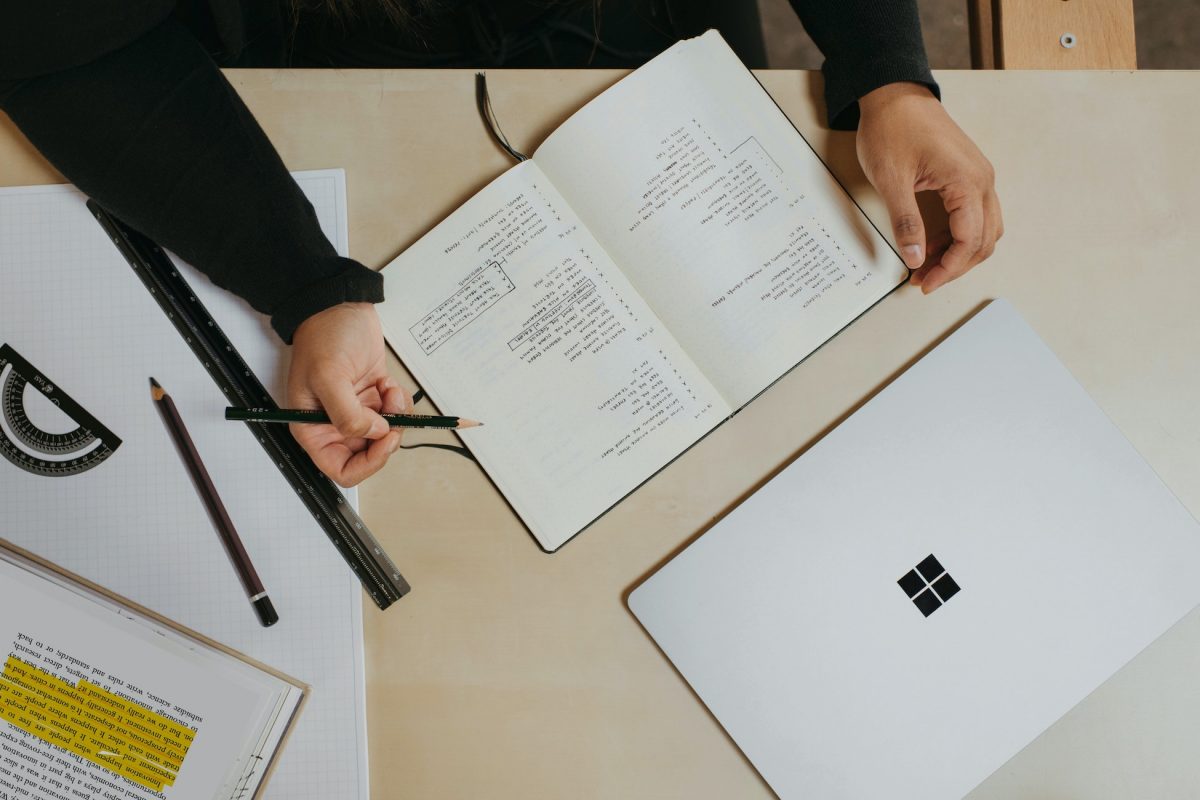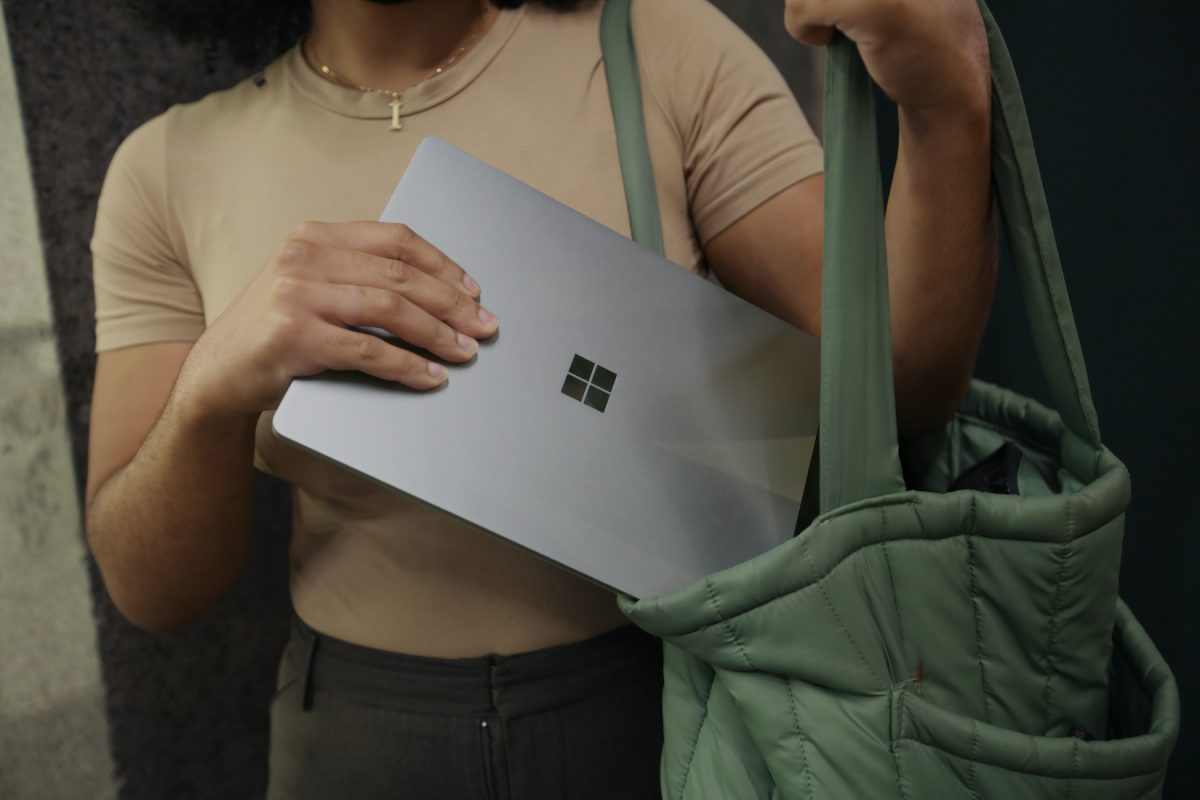Picture this: your little one’s savings growing tax-free while they’re too busy perfecting their TikTok dances or mastering the latest video game challenge. Welcome to the world of Children’s ISAs, where financial savvy meets child-friendly investing. This isn’t your average piggy bank—it’s a state-backed way to save for your child’s future, packed with benefits and designed to give their nest egg a turbo boost. Let’s break down the magic behind these accounts while keeping it real, relatable, and maybe a little bit cheeky.
Children's ISA: Benefits, Fees, Rates & Key Information Table of Contents
Key Benefits of a Children's ISA
Fees and Costs Associated with Children's ISAs
Interest Rates: What You Need to Know
How to Choose the Right Children's ISA for Your Family
Tax Benefits and Investment Advantages
Child's Financial Future: Impact and Long-Term Planning
Comparing Children's ISAs with Other Child Savings Options
Resources and Community Support: Your Next Steps
What Is a Children's ISA?
A Children's ISA (Individual Savings Account) is a tax-free savings account designed specifically for children under 18. Essentially, it’s a financial tool that lets you (or even a generous relative) put money away for your child’s future without worrying about tax taking a bite out of their savings. Think of it as the financial equivalent of a VIP pass: exclusive, beneficial, and built to help your kiddo start life with a leg up.
Unlike adult ISAs, Children’s ISAs are managed in a way that prevents your child from accessing the funds until they hit that magical milestone of 18. That might sound strict, but it ensures that the money is reserved strictly for educational pursuits, a first home, or an emergency fund when they step into adulthood. This restraint also means you can invest with a longer-term perspective, taking advantage of interest and potential market gains without the temptation for early withdrawals.
In a nutshell, a Children's ISA is a smart way to empower your child's financial future by providing a safe, tax-efficient haven for savings. It's designed to adapt to the modern world, embracing digital management and streamlined online processes that resonate with today’s millennial and Gen Z parent or guardian.
Key Benefits of a Children's ISA
Let’s get into the good stuff—why should you even consider a Children's ISA? Aside from the obvious cool factor of having a separate savings account just for your kid, there are several standout benefits that make these accounts a top pick for forward-thinking parents.
Tax-Free Savings: One of the biggest draws of a Children's ISA is that all savings growth, whether from interest or investments, is completely tax-free. Yes, you read that right. The gains made in these accounts won’t be taxed, ensuring that every penny saved contributes fully to your child’s future.
Compound Interest Advantage: Thanks to the magic of compound interest, even modest contributions can snowball over years. By starting early, you’re giving your child the advantage of time—a crucial ingredient for any successful financial plan. Watching those savings grow is like witnessing a tiny seed transform into a mighty oak, all without needing a magic watering can.
Long-Term Investment Horizon: Because the money in a Children's ISA is locked away until they turn 18, you're in a prime position to take advantage of higher-yield investment opportunities that might pay off over the long haul. This makes Children’s ISAs not only a savings account but also an introduction to investing early on in life.
Parental Peace of Mind: Managing a Children's ISA means you’re taking proactive steps to secure your child’s future, giving you both financial security and a dependable safety net. It’s like giving your child a financial superpower—even if they’re not ready to use it until adulthood.
Ease of Access and Management: Many providers have streamlined the process for opening and managing Children’s ISAs, making it as simple as a few clicks on your mobile device. This digital ease is tailor-made for the tech-savvy generation, giving you the freedom to monitor the account from anywhere.
Fees and Costs Associated with Children's ISAs
Now, let’s talk money—specifically, the costs that come with Children’s ISAs. While these accounts are designed to be low-cost and efficient, it’s important to understand the fee structure to maximize your child’s savings.
No Hidden Charges: The beauty of many Children’s ISAs on the market is their fee transparency. In a world where hidden fees can sneak into your bank account like a bad meme rumor, these ISAs promise clear-cut terms. However, it’s crucial to read the fine print as some providers might charge management fees or transaction fees on certain investments.
Setup and Annual Fees: Some providers offer no setup fees, while others might charge a one-time fee when opening the account. Additionally, annual maintenance fees can vary, though many competitive providers offer them for free or at a very low cost. For parents and guardians, this is great news because every extra penny saved on fees means more money for your child’s future.
Investment-Linked Costs: If you opt for an investment Children’s ISA—where your child’s money is invested in stocks, bonds, or funds—there might be additional costs like fund management fees. These fees factor in the expertise of managing a diversified portfolio but rest assured, the returns can often outweigh the fees in the long run.
Comparison Shopping: Like hunting for the best streaming service plan or the perfect pair of sneakers, comparing Children’s ISAs from different providers is a must. Look out for any hidden costs, and consider what type of investment strategy each account offers. The key is to balance low costs with high growth potential while keeping an eye on the long-term benefits.
In summary, while fees associated with Children’s ISAs are typically minimal, understanding them is the first step toward making an informed decision. With a bit of homework and the right provider, maximizing your child’s future becomes easier than perfecting their viral dance move.
Interest Rates: What You Need to Know
Let’s face it—navigating the world of interest rates can feel like decoding a secret language. But when it comes to Children’s ISAs, understanding the rates is key to knowing how fast your child’s savings can grow.
Guaranteed Cash ISAs: Some Children's ISAs operate like a regular savings account, where the interest is fixed and guaranteed. These accounts are a fantastic option for those who prefer a no-risk approach. They offer a predictable return, so you know exactly how much your child’s savings will grow by year-end.
Investment-Based ISAs: Then there are those ISAs that invest your child’s money in the stock market through funds or other investment vehicles. The rates here can fluctuate with market conditions, which means there’s potential for higher returns. Sure, there’s a bit more risk involved (and maybe a few sleepless nights for you), but the reward can be significantly higher over a long period.
Current Trends and Historical Insights: Interest rates have been on a rollercoaster ride over recent years and vary widely among providers. By looking at historical data, you can see the benefits of starting old—embracing the ups and downs of the market over a long time generally leads to a better outcome. Our advice? Keep a close eye on market trends and the specific rates offered by different ISA providers.
What to Consider: When reviewing interest rates, remember that a higher rate isn’t always the best indicator. Consider the account’s fee structure, the risk associated with the investment component, and the overall reputation of the provider. It’s all about finding the right balance between risk and reward, much like choosing between a stable relationship and a thrilling but unpredictable fling.
In essence, understanding interest rates is like learning the rhythm of a favorite song—once you’ve got it, you can groove to the beat of long-term financial growth without missing a step.
How to Choose the Right Children's ISA for Your Family
So, how do you pick the ideal Children's ISA from the sea of options available? Choosing the right ISA is crucial—it should align with your financial goals, offer low fees, and provide attractive interest rates. Plus, it should fit comfortably within your busy lifestyle. Here are some essential tips to keep in mind:
1. Assess Your Financial Goals: Start by figuring out what you want to achieve with your child’s ISA. Are you aiming for steady guaranteed growth, or are you comfortable rocking a bit of market risk for higher rewards? Your answers will steer you towards either a cash-based or investment-based ISA.
2. Compare Providers: Just like comparing the best smartphone deals, research is key. Make sure to review the fee structures, interest rates, and any additional benefits each provider offers. Online comparison tools and reviews can be super helpful in this stage.
3. User-Friendly Digital Experience: If you’re juggling a career, social life, and perhaps even running a startup on the side, you need an ISA provider with an excellent digital dashboard. Look for platforms that allow easy tracking of contributions, clear performance reports, and secure online transactions.
4. Flexibility and Additional Features: Some providers offer bonus features such as regular savings challenges, automatic contributions, or even financial education resources aimed at families. These extras can motivate you to save more consistently and keep you informed about the latest financial trends.
5. Reviews and Reputation: In the age of social media and instant feedback, a provider’s reputation is more important than ever. Check out reviews from other parents and consumers to gauge reliability, customer service quality, and overall user satisfaction.
Choosing the right Children's ISA is like finding the perfect playlist for your daily commute—it needs to resonate with your style, keep you motivated, and ultimately help you reach your destination smoothly. With diligence and a little digital detective work, you can secure an option that turns saving for your child into a fun and rewarding experience.
Tax Benefits and Investment Advantages
Here’s a tidbit that makes Children’s ISAs truly shine: tax benefits. In the realm of personal finance, tax efficiency is like discovering a secret level in your favorite video game—both exciting and incredibly rewarding.
Tax-Free Growth: The most enticing aspect of a Children’s ISA is that all the interest and investment gains are free from tax. Over hundreds or thousands of years—okay, more realistically, decades—the tax-free growth can lead to impressive sums that boost your child’s financial security dramatically.
Long-Term Wealth Generation: Since the funds in a Children’s ISA are locked in until your child reaches adulthood, there’s ample time for compound interest to do its thing. Early investments grow exponentially over time, thanks to the benefits of compound interest. Think of it as planting a money tree that sprouts steadily throughout your child’s life.
Investment Opportunities: If you decide to go with an investment-based ISA, you’re tapping into the power of the stock market. While this involves a bit more risk, it also opens doors to significant upside potential. Over decades, even moderate investment returns can transform those early contributions into a substantial nest egg.
A Boost for Financial Literacy: Setting up a Children’s ISA isn’t just about saving money—it’s also an opportunity to teach your child where money comes from and how it works. By involving them (when the time is right) in understanding basic investment principles, you’re laying the groundwork for smart financial habits that can last a lifetime.
Overall, the combined tax relief, compounded growth, and investment potential of Children's ISAs make them a standout choice for any parent or guardian interested in setting the stage for long-term financial wellbeing.
Child's Financial Future: Impact and Long-Term Planning
When it comes to planning for a child’s financial future, a Children’s ISA is a powerhouse tool. Whether you're saving for higher education, a future entrepreneurial venture, or that first slice of adult independence (hello, first apartment deposit!), the long-term benefits are enormous.
Start Early, Reap Big: The earlier you start, the more time your money has to grow. Even small, consistent contributions can add up significantly over 18 years or more. This long-term approach not only multiplies the initial investment but also helps you weather economic fluctuations along the way.
Family Legacy and Future Security: By building a robust financial foundation early on, you’re giving your child a head start in life. This approach isn’t just about collecting funds—it’s about creating a lasting legacy of financial security that can support their ambitions, be it university tuition, a first home, or even starting a business.
Planning for Milestones: A Children’s ISA can be a critical asset for planning investment in major future milestones. Whether it’s contributing to tuition fees, a gap year fund, or even a first car, having this financial cushion can ease the stress of transitioning into adulthood.
Encouraging Financial Responsibility: Besides the monetary gain, having an ISA can serve as a tool to instill financial discipline. As your child grows, involving them in conversations about budgeting, saving, and investing can pave the way for responsible money management in the future.
With a focus on long-term planning and a sprinkle of financial foresight, a Children's ISA transforms into more than just a savings account—it’s a dynamic instrument for lifelong wealth creation and financial independence.
Comparing Children's ISAs with Other Child Savings Options
In the world of saving for your child’s future, you have more options than just a traditional bank account. While a high-interest savings account might seem appealing initially, a Children’s ISA offers distinct advantages that make it a compelling choice.
Junior ISAs vs. Standard Savings Accounts: Unlike conventional savings accounts that often come with taxation on interest earned, Junior ISAs (Children’s ISAs) provide a tax-free growth environment. This advantage alone can result in significantly higher returns over time. Additionally, many standard accounts do not offer the flexibility of investment options that some ISAs provide.
Investment Options: While standard accounts might only give you a fixed interest rate, many Children's ISAs offer either cash-based policies with fixed rates or investment-based options that can yield higher returns (albeit with more risk). This flexibility means you can tailor the account to your family’s unique risk tolerance and growth expectations.
Accessibility and Control: Although the funds in a Children's ISA are locked until adulthood for the child’s benefit, this controlled access acts as a safeguard. In contrast, regular savings accounts might provide easier access, sometimes to the detriment of long-term saving goals if parents or children dip into the funds unwisely.
Account Management and Digital Integration: Today’s financial landscape demands convenience and transparency. A growing number of Children’s ISA providers offer robust digital platforms with user-friendly interfaces and real-time monitoring capabilities. This technological edge ensures that your child’s savings are always just a few taps away, making it as hassle-free as ordering your favorite takeout.
In summary, while every saving option has its merits, a Children’s ISA often emerges as the optimal balance between tax efficiency, long-term growth potential, and digital convenience. It’s like choosing between a quick snack and a full-course meal: sometimes, a little planning and the right ingredients make all the difference.
Resources and Community Support: Your Next Steps
Now that you’re armed with the knowledge of what a Children’s ISA is, its benefits, fees, and how it stacks up against other saving options, it’s time to transform that knowledge into action. The next step? Tapping into a wealth of resources and building a community that supports your financial journey.
Online Financial Forums and Blogs: The internet is brimming with communities where like-minded parents share their experiences and tips on setting up and managing Children’s ISAs. These platforms can provide insights, comparative reviews of providers, and even strategies for maximizing returns. Whether it’s a Reddit thread, a financial blog, or dedicated ISA review sites, consider them your digital treasure trove of financial wisdom.
Webinars and Podcasts: If you’re into multitasking while learning, there’s no shortage of webinars and podcasts discussing the ins and outs of tax-efficient saving and investment. These resources often include expert advice tailored to millennial and Gen Z perspectives—making them both informative and entertaining.
Financial Advisors and Community Groups: Sometimes, a one-on-one session with a financial advisor can illuminate the finer details of selecting the best Children’s ISA for your family’s needs. Look for advisors who are up-to-date with modern digital tools and who really “get” the financial realities facing today’s young families.
Local Workshops and Parent Networks: Don’t underestimate the power of local knowledge. Many communities host financial planning workshops or have parent networks where practical experiences with Children’s ISAs are shared. These in-person or virtual meetups are excellent for networking, obtaining reliable recommendations, and even finding local support groups.
Financial Literacy Programs: Many organizations offer resources aimed at boosting financial literacy for both parents and kids. These programs are often designed to be engaging, interactive, and sometimes even gamified, allowing your child to gradually learn the basics of saving and investing.
Each of these resources not only enriches your understanding but also places you within a community that champions financial empowerment. Your journey toward a secure financial future for your child is best traveled with a little help and a lot of support.
So go ahead—dive into online resources, join a local financial meet-up, or simply follow a reputable financial advisor on social media. The right community can provide continuous motivation, clear guidance, and that extra push to keep your child’s savings on track.
Frequently Asked Questions About Children's ISAs
Below are some of the most common questions about Children’s ISAs, designed to clear up any lingering doubts and help you make informed decisions for your family’s financial future.
1. What exactly is a Children's ISA?
A Children's ISA is a tax-free savings account designed specifically for children under 18. It allows parents or guardians to save or invest money on behalf of their child, ensuring the funds grow without being subject to income tax.
2. Who can open a Children's ISA?
Typically, a parent or legally responsible guardian can open a Children's ISA for a child, and contributions can be made by family members, friends, or even the account holder when applicable.
3. When can the child access the money in their ISA?
Funds in a Children's ISA are generally locked until the child reaches 18, ensuring that the savings are preserved for long-term goals such as higher education, a first home, or starting out in life.
4. What are the main benefits of a Children's ISA?
The key benefits include tax-free interest or investment gains, the advantage of compounding over the long term, and the promotion of early financial literacy. These factors combine to provide a powerful foundation for your child’s future financial security.
5. Are there any fees associated with Children's ISAs?
While many Children's ISAs come with minimal fees, such as low annual management charges or setup fees, it’s important to review each provider’s fee structure to avoid any hidden costs.
6. Can I choose between a cash-based and an investment-based ISA?
Yes, you can choose either a cash Children's ISA, which offers fixed interest rates, or an investment-based ISA that invests in the market—each comes with its own risk/reward profile.
7. How do I monitor and manage a Children's ISA?
Most providers offer a robust online dashboard or mobile app, allowing you to track contributions, review performance, and adjust strategies as needed—all from the comfort of your smartphone.
8. What happens if I over-contribute to a Children's ISA?
There are annual contribution limits for Children's ISAs. Exceeding these limits can result in penalties or require that excess funds be redirected to a different savings vehicle. Be sure to check the current limit set by the government.
9. How do Children's ISAs compare with other child saving options?
Children’s ISAs offer tax-free growth and often come with digital management tools that regular savings accounts lack. They also provide opportunities for investment growth if you opt for an investment-based option.
10. What should I consider when choosing a provider?
Look for transparency in fees, user-friendly digital platforms, a competitive interest or growth rate, and positive reviews. Comparing multiple options will help ensure you choose the best fit for your family’s needs.
Your Path Forward to a Brighter Financial Future
Whether you’re a millennial parent juggling career, life, and the endless search for the perfect avocado toast recipe, or a Gen Z guardian ready to pave a secure financial path for your child, a Children’s ISA is one smart tool in your arsenal. By harnessing the benefits of tax-free growth, understanding the fine print of fees and interests, and tapping into modern digital management, you’re setting the stage for a future where financial anxiety is replaced with potential and opportunity.
Embrace the journey as you navigate the world of Children’s ISAs with humor and a down-to-earth approach. Every contribution, every smart decision, and every moment spent researching will add up to a brighter, more secure future for your little one. And remember, the world of finance isn’t just for the Wall Street elite—it’s for anyone who’s ready to take control of their future, one savvy decision at a time.
Empower yourself with the knowledge to choose the right account, keep an eye out for the best rates, and enjoy the peace of mind that comes with knowing you’re building lasting wealth for the next generation. Your financial journey, charged with modern insights and a sprinkle of humor, starts with that very first step of opening a Children’s ISA.
Ready to dive in? Explore providers, harness community support, and make that smart financial leap today. With every click and every decision, you’re not just saving money—you’re investing in your child’s dreams, their education, and a future full of possibilities.













